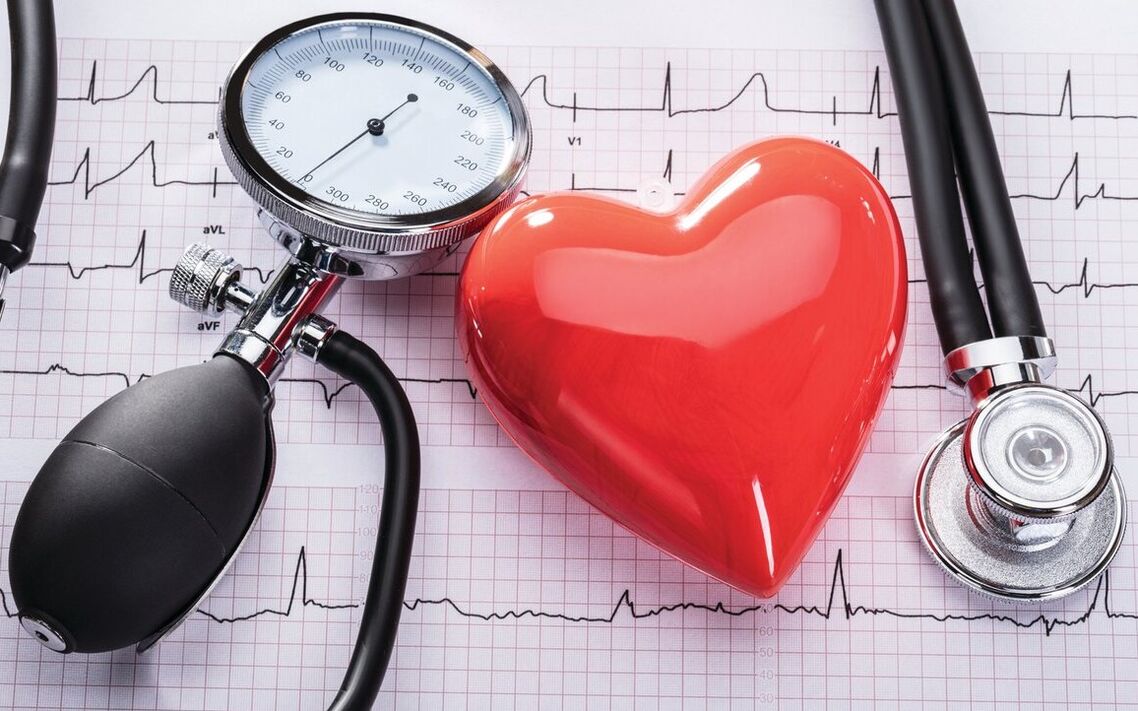
Arterial hypertension (high blood pressure) is widespread throughout the world. In our country, 40% of the adult population has high blood pressure, and only 21% are treated effectively.
Hypertension, essential hypertension, arterial hypertension or arterial hypertension?
Previously, the term hypertension was used in our country. For some time now, in accordance with the criteria of the World Health Organization (WHO), the term arterial hypertension or arterial hypertension has been used.
What is hypertension?
You can be said to have arterial hypertension if an increase in blood pressure is registered by your doctor during at least 3 control blood pressure measurements.
Normally, pressure numbers can fluctuate depending on a person’s condition: increase during physical or psycho-emotional stress, decrease during sleep. However, the pressure returns to normal numbers from 100/60 to 140/90.
Symptoms of hypertension
The main symptom of hypertension is headache. This occurs due to narrowing and spasm of the blood vessels in the brain. Also common symptoms of hypertension:
- Tinnitus
- Flying "flies" and a veil before the eyes
- General weakness
- Sleep disturbance
- Dizziness
- Feeling of heaviness in the head
- Palpitations
Such symptoms occur at an early stage of hypertension and are neurotic in nature. In later stages of hypertension, heart failure may occur due to constant overwork of the heart muscle due to high blood pressure.
Due to the progression of the disease process, there may be a decrease in visual acuity, damage to blood vessels in the brain from high blood pressure, this can in some cases lead to paralysis, decreased sensitivity of the limbs, which occurs due to vasospasm, hemorrhage or thrombosis.
Causes of hypertension
If the cause of the increase in blood pressure is not established, they speak of primary (essential) hypertension, or essential hypertension. The following play a role in its development:
- Hereditary predisposition
- Chronic stress
- Amount of salt consumed
- Low physical activity, etc.
- In women, the cause of hypertension may be the period of restructuring of the body during menopause.
The underlying cause is difficult to determine in any given case because most people diagnosed with hypertension are exposed to multiple risk factors that contribute to high blood pressure.
Up to 5% of arterial hypertension are secondary (symptomatic), that is, caused by certain causes. Most often, kidney pathology, endocrine pathology, or abnormalities of large vessels lead to increased blood pressure.
The examination of patients is aimed at excluding secondary causes of high blood pressure, since sometimes these causes can be eliminated or they require specific treatment.
In addition, the examination clarifies changes in organs and systems caused by arterial hypertension itself. High blood pressure leads to changes in the heart, kidneys, brain vessels, and fundus vessels. Such examination must be carried out regularly, at least once a year.
The level of arterial hypertension and target organ damage determines the risk of developing cardiovascular complications. Depending on the degree of risk, treatment tactics are determined: from lifestyle changes, diet and weight loss to the immediate start of drug therapy.
It is important to monitor your blood pressure not only when visiting a doctor, but also on your own.
How to measure pressure?
How to measure blood pressure:
- Blood pressure should be measured at rest, after a 5-minute rest, while sitting
- The tonometer cuff should be at the level of the heart, its lower edge 2 cm above the elbow
- Blood pressure should be measured every day and recorded in a blood pressure diary.
Treatment of hypertension
A blood pressure control program consists of lifestyle changes and drug therapy. Changing your lifestyle involves:
- Regular physical activity up to 30 minutes a day
- Low calorie diet and weight loss
- Reducing salt intake
- Limiting alcohol consumption
- Reducing intake of saturated fatty acids and cholesterol-rich foods
- Increasing fruit consumption
- Quitting smoking
Drug therapy is prescribed immediately if the level of blood pressure is high. Most patients need to take 2 or more medications.
Treatment of patients with arterial hypertension is carried out continuously, since its cancellation will again lead to an increase in blood pressure.























